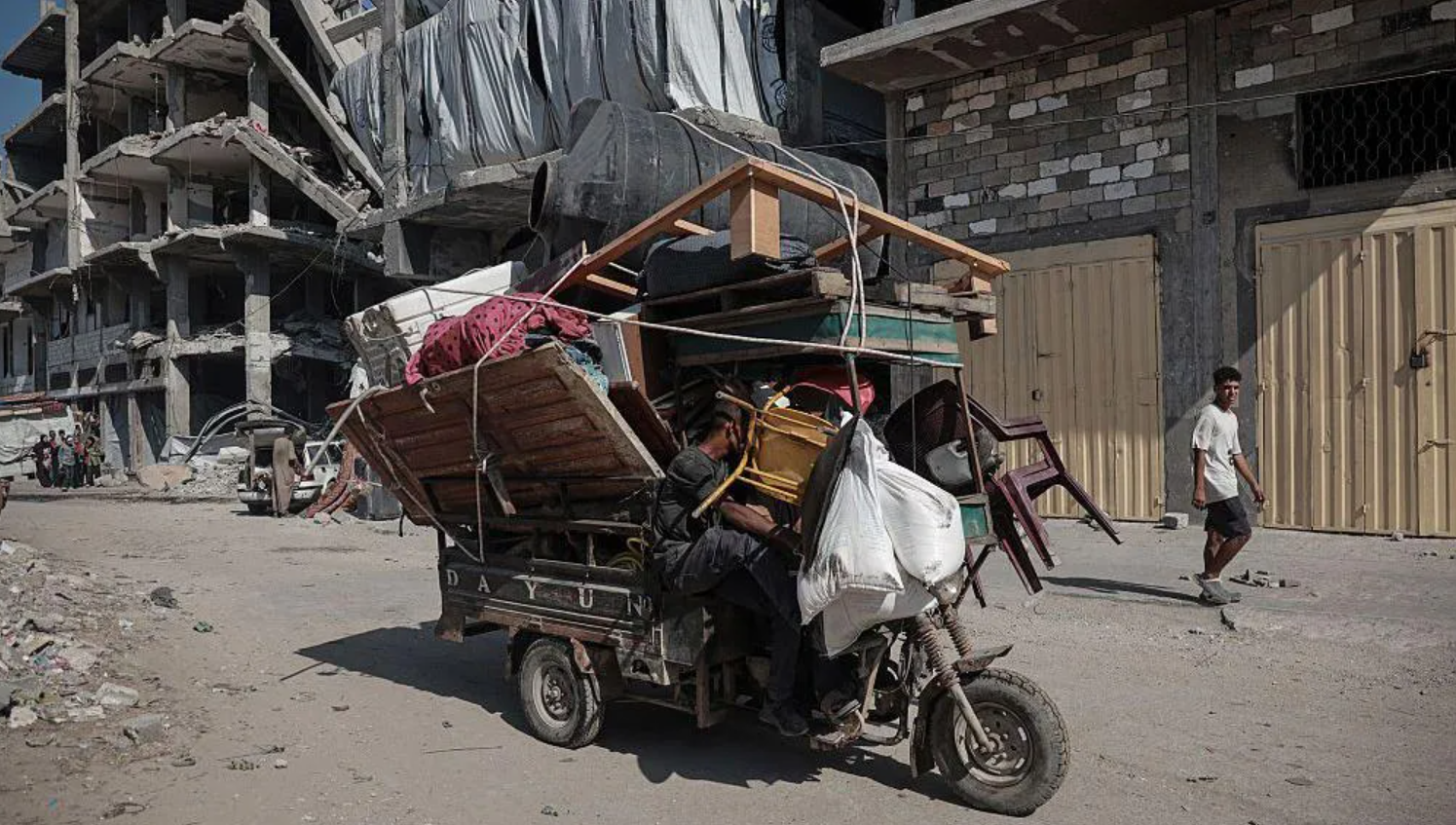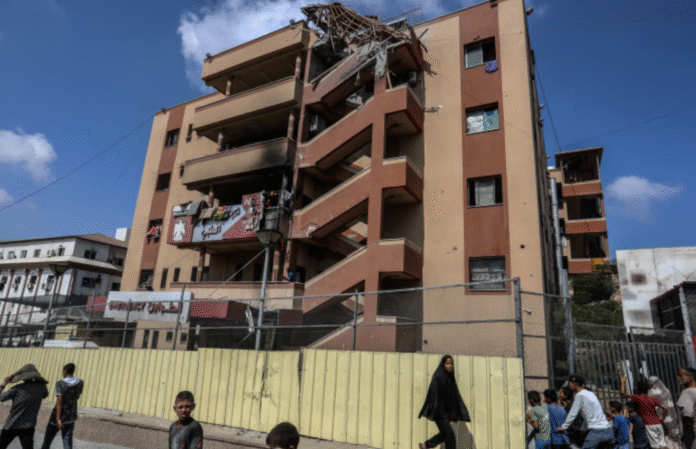Israeli Gaza Hospital Strike Leaves UN Demanding Justice
The Israeli Gaza hospital strike has ignited international outrage after two consecutive attacks hit Nasser Hospital in Khan Younis, killing at least 20 people. Among the dead were five journalists and four healthcare workers, sparking widespread condemnation from global leaders, human rights groups, and the United Nations.
The United Nations issued a strong statement, declaring that “justice must be served” and demanding accountability. The tragedy has reopened debates about Israel’s military conduct in Gaza, press freedom in conflict zones, and the safety of medical facilities under international law.
Why the Israeli Gaza Hospital Strike Has Sparked Outrage
On Monday, two strikes were launched just minutes apart on the Nasser hospital grounds.
- The first attack killed Reuters cameraman Issam Abdallah, who was operating a live broadcast from the hospital staircase.
- A second strike, only 10 minutes later, hit rescuers and fellow journalists who had rushed to the scene.
At least 20 people were confirmed dead, including reporters working for Reuters, Al Jazeera, Associated Press, and Middle East Eye. The deaths highlight the ongoing risks faced by journalists covering the Israel–Hamas war and raised urgent questions about whether reporters were deliberately targeted.
The UN Human Rights Office condemned the strike:
“This is unacceptable and must be investigated. There needs to be justice, and accountability is long overdue.”

Israel’s Response to the Gaza Hospital Strike
Shortly after, the Israel Defense Forces (IDF) released its preliminary investigation. According to the report, the strike targeted a Hamas-placed surveillance camera near the hospital that was allegedly monitoring Israeli troop movements.
The IDF claimed:
- The camera was dismantled in the first strike.
- Six of those killed were “terrorists.”
- Journalists were not deliberately targeted.
However, critics point out that the second strike, which hit rescuers and reporters, remains unexplained. Even Israeli officials acknowledged that there were “gaps” in the inquiry and promised further investigation into ammunition used and the decision-making process in the field.
This response appeared to conflict with Prime Minister Netanyahu’s earlier description of the incident as a “tragic mishap,” leaving observers unconvinced.
International Reaction and Condemnation
Global outrage intensified after news spread about the journalists’ deaths.
- UK Prime Minister Keir Starmer called the attack “completely indefensible.”
- Reporters Without Borders demanded a full independent investigation.
- UN officials warned that Israel’s repeated targeting of hospitals violates international humanitarian law.
Human rights groups argue that Israel has systematically targeted Gaza’s medical facilities under the justification that Hamas uses them for military purposes. But critics insist that even in war, hospitals are protected under international law.
Protests Inside Israel
While condemnation grew abroad, unrest also escalated within Israel. Thousands of protesters took to the streets, blocking highways and demonstrating in Tel Aviv, Jerusalem, and other cities.
The demonstrators demanded that Prime Minister Netanyahu agree to a hostage-release ceasefire deal with Hamas. Families of hostages have continued pressuring the government, saying the war has failed to bring their loved ones home.
One protester, Yehuda Cohen, whose son was kidnapped on October 7, 2023, stated:
“Every day without a deal puts hostages at greater risk. We cannot allow Netanyahu to prolong this war while families suffer.”

Humanitarian Crisis in Gaza
The Israeli Gaza hospital strike is just one part of a broader humanitarian catastrophe.
-
According to Gaza’s health ministry, more than 62,000 people have been killed since October 2023.
-
Over 90% of homes have been damaged or destroyed.
-
Healthcare, water, and sanitation systems have nearly collapsed.
A UN-backed famine report revealed that half a million Palestinians are facing catastrophic conditions marked by starvation and death. Israel has rejected these findings as “lies,” but aid agencies continue to sound the alarm.
The Future of Gaza and International Pressure
Diplomatic efforts are ongoing. Qatar confirmed that ceasefire proposals are still “on the table,” but Israel has yet to respond officially. Meanwhile, the United States announced it will host a meeting on Gaza’s post-war future, signaling international pressure is intensifying.
Despite these moves, critics fear the cycle of violence will continue without concrete accountability. The Israeli Gaza hospital strike may become a turning point, forcing both Israel and the international community to confront unanswered questions about justice, war crimes, and humanitarian law.
Conclusion: Why Justice Matters
The Israeli Gaza hospital strike is not just another wartime tragedy, it highlights the dangerous collapse of international protections for journalists, medical workers, and civilians. As the UN pushes for justice, the world is watching whether Israel will provide genuine accountability or dismiss the deaths as collateral damage.
For families mourning loved ones and for those displaced in Gaza, the demand for justice is not political, it is deeply human.

